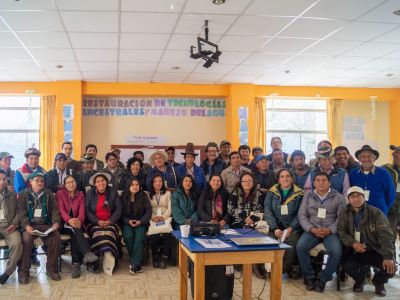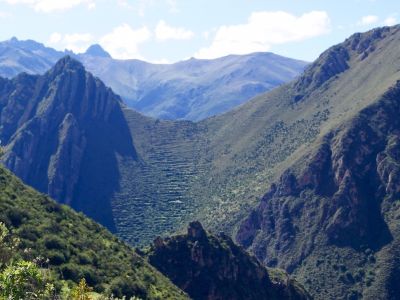Empowering Mountain Cultures
Featured Programs

RETAMA
RETAMA is the Spanish acronym for “Restoring Ancestral Technologies and Water Management.” This initiative integrates 2,000 years of indigenous knowledge of water management with contemporary science and technology. Remote Andean communities are restoring ancient water management systems to adapt to climate change. Their hybrid solutions are designed to address specific, local needs. By improving water security and supporting sustainable livelihoods, mountain communities become more resilient in the face of climate change. Humans and wildlife both benefit since water management is key to healthy mountain ecosystems. The RETAMA Initiative won the prestigious St Andrews Prize for the Environment, 2018. We see this award as a recognition of how urgent it is to find solutions that secure mountain peoples’ water and livelihoods while making sure these solutions are deeply rooted in local cultures.
Learn more in our photo story, “Back-to-the-Future Solutions.”
Learn more in our photo story, “Back-to-the-Future Solutions.”

Ancestral Technologies and Cimate Change
The Instituto de Montaña conducted a study of the ancestral technologies used in the Reserva Paisajística Nor Yauyos Cochas during pre-Inca times to manage high-altitude ecosystems. This study contributed to our understanding of the ways in which ancient cultures managed the land and water. The study was conducted by a team of archeologists led by Dr. Alexander Herrera, professor at the Universidad de los Andes in Colombia. A summary of this study has been published to disseminate knowledge of ancestral technologies that have great potential to be restored. These water management methods from long ago will support modern adaptations to climate change while also affirming traditional knowledge and cultural identity.
Learn more about our Ancestral Technologies project.
Learn more about our Ancestral Technologies project.
